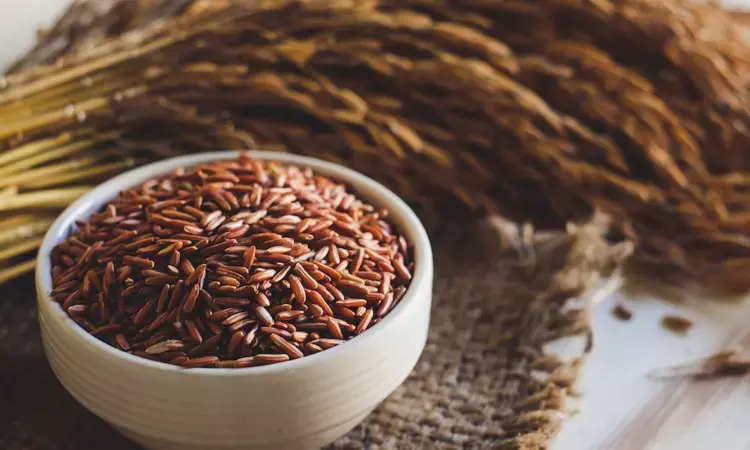- Home
- Medical news & Guidelines
- Anesthesiology
- Cardiology and CTVS
- Critical Care
- Dentistry
- Dermatology
- Diabetes and Endocrinology
- ENT
- Gastroenterology
- Medicine
- Nephrology
- Neurology
- Obstretics-Gynaecology
- Oncology
- Ophthalmology
- Orthopaedics
- Pediatrics-Neonatology
- Psychiatry
- Pulmonology
- Radiology
- Surgery
- Urology
- Laboratory Medicine
- Diet
- Nursing
- Paramedical
- Physiotherapy
- Health news
- Fact Check
- Bone Health Fact Check
- Brain Health Fact Check
- Cancer Related Fact Check
- Child Care Fact Check
- Dental and oral health fact check
- Diabetes and metabolic health fact check
- Diet and Nutrition Fact Check
- Eye and ENT Care Fact Check
- Fitness fact check
- Gut health fact check
- Heart health fact check
- Kidney health fact check
- Medical education fact check
- Men's health fact check
- Respiratory fact check
- Skin and hair care fact check
- Vaccine and Immunization fact check
- Women's health fact check
- AYUSH
- State News
- Andaman and Nicobar Islands
- Andhra Pradesh
- Arunachal Pradesh
- Assam
- Bihar
- Chandigarh
- Chattisgarh
- Dadra and Nagar Haveli
- Daman and Diu
- Delhi
- Goa
- Gujarat
- Haryana
- Himachal Pradesh
- Jammu & Kashmir
- Jharkhand
- Karnataka
- Kerala
- Ladakh
- Lakshadweep
- Madhya Pradesh
- Maharashtra
- Manipur
- Meghalaya
- Mizoram
- Nagaland
- Odisha
- Puducherry
- Punjab
- Rajasthan
- Sikkim
- Tamil Nadu
- Telangana
- Tripura
- Uttar Pradesh
- Uttrakhand
- West Bengal
- Medical Education
- Industry
Unlocking the Potential: Germinated brown and black rice show promise for managing type 2 diabetes with dyslipidemia in new research

China: In the ongoing quest to manage type 2 diabetes mellitus (T2DM) and its comorbidities, researchers have turned their attention to the potential benefits of germinated brown and black rice. A recent study published in Food & Function sheds light on the effects of these rice varieties on individuals grappling with both T2DM and dyslipidemia, a condition characterized by abnormal lipid levels in the blood.
The study revealed that the consumption of germinated brown rice and germinated black rice can effectively regulate glucose and lipid metabolism, compared with white rice consumption.
"Interventions involving the use of germinated black rice and germinated brown rice may further improve intestinal diversity and abundance, decrease the relative abundance of Veillonella, and increase the relative abundance of Megamonas," the researchers wrote.
Germinated brown rice, commonly referred to as GABA (gamma-aminobutyric acid) rice, and germinated black rice are known for their enhanced nutritional profiles compared to their ungerminated counterparts. These varieties are rich in bioactive compounds, antioxidants, and fiber that confer various health benefits.
Fengyi Zhao, Southeast University, Nanjing, China, and colleagues aimed to observe the effects of germinated black rice and germinated brown rice on blood lipid levels, blood glucose levels, and lipid metabolism-related enzymes in T2DM patients with dyslipidemia. They also studied their effects on the gut microbiome and short-chain fatty acids.
Sixty-eight subjects were included, following the exclusion and inclusion criteria. They were randomly divided into a germinated brown rice group, a germinated black rice group, and a white rice group. At the end of the intervention, the research team measured blood biochemistry, relevant anthropometric indices, and levels of adipokines and lipid metabolism-related enzymes. Fecal samples were collected for 16S rDNA high-throughput sequencing and analysis of short-chain fatty acids.
The study led to the following findings:
- After three months of intervention with germinated brown rice, germinated black rice, or white rice, 21 people in each group completed the intervention as required.
- At the end of the intervention, the levels of total cholesterol (TC) and low-density lipoprotein cholesterol (LDL-C) in the germinated brown rice group, and germinated black rice group were significantly lower than those in the white rice group.
- The adiponectin (ADPN) and lecithin cholesterol acyltransferase (LCAT) levels in the germinated brown rice group were significantly higher than those in the white rice group.
- At the genus level, interventions with germinated brown rice and germinated black rice significantly increased the relative abundance of Megamonas, Muribaculaceae, and Alloprevotella and significantly decreased the relative abundance of Veillonella.
- After three months of intervention, there was a significant decrease in waist circumference within the germinated brown rice group compared to baseline.
In light of the rising prevalence of T2DM and dyslipidemia worldwide, these findings offer hope for a natural and accessible dietary intervention that may complement existing treatment modalities. As researchers continue to unravel the therapeutic potential of functional foods like germinated brown and black rice, the path toward improved metabolic health becomes increasingly promising.
Reference:
Zhao, Fengyi, et al. "Effects of Germinated Brown Rice and Germinated Black Rice On People With Type 2 Diabetes Mellitus Combined With Dyslipidaemia." Food & Function, 2024.
Dr Kamal Kant Kohli-MBBS, DTCD- a chest specialist with more than 30 years of practice and a flair for writing clinical articles, Dr Kamal Kant Kohli joined Medical Dialogues as a Chief Editor of Medical News. Besides writing articles, as an editor, he proofreads and verifies all the medical content published on Medical Dialogues including those coming from journals, studies,medical conferences,guidelines etc. Email: drkohli@medicaldialogues.in. Contact no. 011-43720751


